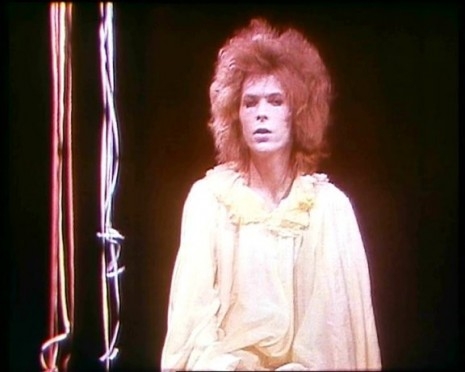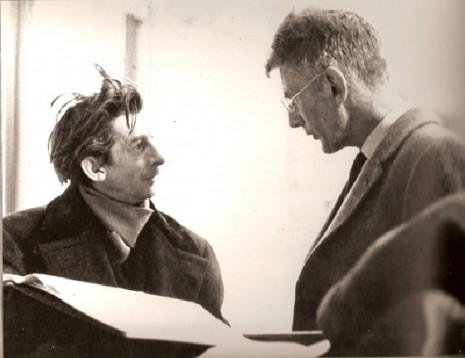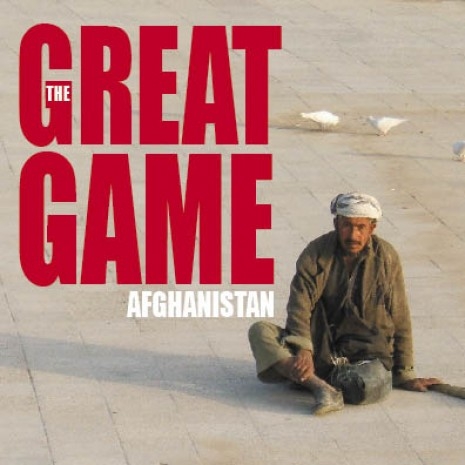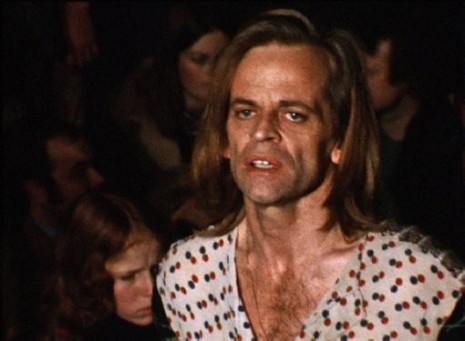
In 28 December 1967, David Bowie made his theatrical debut at the Oxford New Theater, in Lindsay Kemp’s mime Pierrot in Turquoise or, The Looking Glass Murders. Bowie wrote and performed the music. He also starred as Cloud alongside Kemp’s Pierrot, Jack Birkett’s Harlequin, and Annie Stainer’s Columbine.
The production was still in rehearsal when it played for its one night at the New Theater, which perhaps explains why the Oxford Mail described the show as “something of a pot-pourri,” though it highlighted Bowie’s contribution for praise:
David Bowie has composed some haunting songs, which he sings in a superb, dreamlike voice. But beguilingly as he plays Cloud, and vigorously as Jack Birkett mimes Harlequin, the pantomime isn’t a completely satisfactory framework for some of the items from his repertoire that Mr Kemp, who plays Pierrot, chooses to present….
...No doubt these are shortcomings Mr. Kemp will attend to before he presents Pierrot in Turquoise at the Prague Festival at the invitation of Marceau and Fialka next summer. No mean honour for an English mime troupe.
The mime told the story of Pierrot and his attempts to win the love of his life, Columbine. Of course things are never simple, and Columbine falls for Harlequin, and is then killed by Pierrot.
After a few tweaks, Pierrot in Turquoise opened at the Rosehill Theater, Whitehaven, before its proper run at the Mercury Theater, and Intimate Theater, both London, in March 1968.
Bowie’s career throughout the sixties exemplifies Thomas Edison’s adage “Genius is one percent inspiration, ninety-nine percent perspiration,” as the young hopeful musician worked hard and toured the length and breadth of the UK under various guises: The Konrads, The Hookers, Davie Jones and The King Bees, The Manish Boys, the Blues influenced Davie Jones and The Lower Third, Davie Jones and The Buzz, and The Riot Squad, a band described as:
“The Complete Musical Entertainers covering Pop, Tableaux, Burlesque and Parody”
Even at this early stage, Bowie was shedding musical styles quicker than he changed his hairstyle - from beat thru Blues to Music Hall and Pop. With hindsight you can see where his career was going. But by 1967 the teenager’s first recording career had come to a halt with the release of Laughing Gnome after which Bowie didn’t release a record for another two years.
It was during this time Bowie fell under the influence of mime artist and performer Lindsay Kemp. He helped Bowie channel his talent towards Space Oddity and later Ziggy Stardust. As Kemp told journalist Mick Brown for Crawdaddy in 1974:
“I taught David to free his body,” says Kemp, smiling wickedly.
“Even before meeting, David and I had felt the need to work together. I’d identified myself with his songs, and he’d seen my performances and identified himself with my songs. I was singing the songs of my life with my body; he was singing the songs of his life very fabulously with his voice, and we reckoned that by putting the two together the audience couldn’t help but be enthralled. In other words, one large gin is very nice, but two large gins are even nicer.”
The two large gins became Pierrot in Turquoise, which was filmed by Scottish Television in 1969 and broadcast in July 1970. How a small regional TV station like STV came to film this rather strange theatrical show is no doubt a tale in itself, but thankfully they did, even if one cataloguer at Scottish Screen Archives “found this quite creepy,” it is still well worth watching.
The cast:
David Bowie as Cloud
Lindsay Kemp as Pierrot
Jack Birkett as Harlequin
Annie Stainer as Columbine
Michael Garret as Piano Player
It was filmed at the Scottish Television’s Gateway Theater in Edinburgh, and was directed by Brian Mahoney. Now if only STV made programs like this today…
Previously on DM
David Bowie comes to life in ‘The Image’









